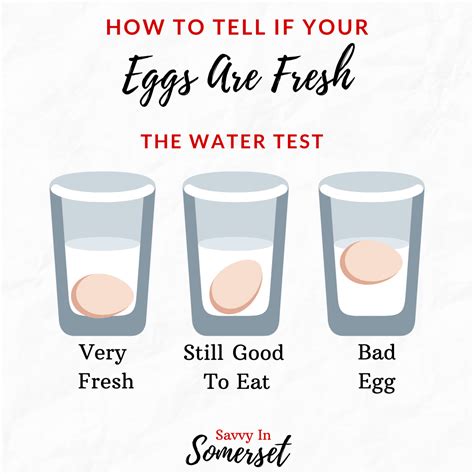How to Test Eggs for Freshness: Simple Methods to Ensure Quality
Knowing how to test eggs for freshness is a crucial kitchen skill. Whether you're a seasoned chef or a beginner baker, using fresh eggs ensures the best taste and texture in your recipes. Spoiled eggs, on the other hand, can ruin a dish and even cause food poisoning. This guide provides simple, reliable methods to determine if your eggs are still good.
The Float Test: A Quick and Easy Check
This is perhaps the most well-known method and is surprisingly accurate. Simply fill a bowl or glass with cold water and gently place the egg in the water.
Here's how to interpret the results:
- Egg sinks and lies flat: Your egg is fresh and should be perfectly fine to use.
- Egg sinks but stands on one end: The egg is still usable, but it's getting older and should be used soon.
- Egg floats: Do not use this egg. This indicates that the air sac inside has significantly expanded, meaning the egg is spoiled and should be discarded.
The Crack and Smell Test: A More Definitive Approach
If you're still unsure after the float test, or if you need to be absolutely certain, this method offers greater confidence.
How to do it:
- Crack the egg into a bowl or plate.
- Examine the yolk and white. Fresh eggs have a high, rounded yolk and a thick, firm white. Older eggs will have a flatter, wider yolk and thinner, watery whites.
- Smell the egg. A fresh egg will have very little odor. A rotten egg will have a pungent, unpleasant smell – this is a clear sign of spoilage. If it smells off, discard immediately.
Important Note: Even if the egg passes the smell test, examine the appearance carefully. Any unusual discoloration or slimy texture indicates spoilage.
Beyond the Basics: Understanding Egg Storage
Proper storage significantly impacts an egg's shelf life. Here are some tips to keep your eggs fresher for longer:
- Refrigerate: Always refrigerate eggs immediately after purchase. Keep them in their original carton or in a designated egg holder in your refrigerator.
- Avoid Door Storage: The temperature fluctuations in the refrigerator door are less stable, causing the eggs to spoil faster.
- Use First, In First Out (FIFO): Organize your eggs so that the oldest ones are used before the newest ones. This prevents waste and ensures you're always using the freshest eggs.
Frequently Asked Questions (FAQs)
Q: How long can I keep eggs in the refrigerator?
A: Fresh, commercially produced eggs can typically last for 3-5 weeks in the refrigerator. However, it's always best to use the methods described above to assess freshness.
Q: Can I freeze eggs?
A: Yes, you can freeze eggs, but the texture might change slightly. It's best to freeze them lightly beaten or whole.
Q: What should I do with old eggs that aren’t spoiled but aren't super fresh?
A: Use them in baked goods where the texture is less critical, such as cakes or muffins.
By employing these simple tests and following proper storage techniques, you can confidently ensure you're always using fresh, high-quality eggs in your cooking. Remember, safety is paramount; when in doubt, throw it out!
